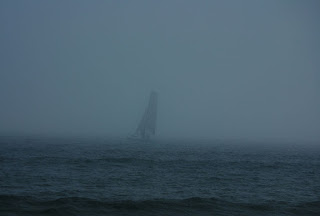Keel of a Ship
Susan Sontag in a book of essays, Regarding the Pain of Others, writes about Collective Memory. She was referring to perhaps collective guilt surrounding the holocaust and how a nation with a strong collective memory also carries guilt. Many Americans have a collective memory of 9/11 coupled also with personal narratives about where they were that day and how it has impacted their life
Nevertheless, most memories are singular—though a few are
collective or work in tandem with others. I might have a memory, my own
particular interpretation of a memory you have shared.
My friend Hilde recollected to me that once she was running
by the lake when out of the mist she saw the mast of a tall ship. It seemed
immediately odd that it would be so close to the shore. A man on deck called
out. The rest was confusing—he didn’t want to be rescued, he did want help. He
didn’t want to leave his boat, but if the Coast Guard came they were
responsible for saving only him and not the vessel. So she left him there on
his slowly tilting sailboat.
She was confused when telling me this story. Mostly she said
she couldn’t remember the word for the thing under the boat, the thing that
caused him to be stuck on the sand bar.
Keel? I ventured.
She only knew the word in Norwegian* and hadn’t had much
opportunity to use it in English. Yes, she said.
All this to say, this past weekend while running by the lake
in a dreary mist my eyes searched the coast for ghost ships emerging from out
of the fog. While at the same time my brain was repeating: keel.
Collectively I can’t imagine ever forgetting this story.
*From Wiki: The word originates in the Scandinavian word for
beard.

Comments